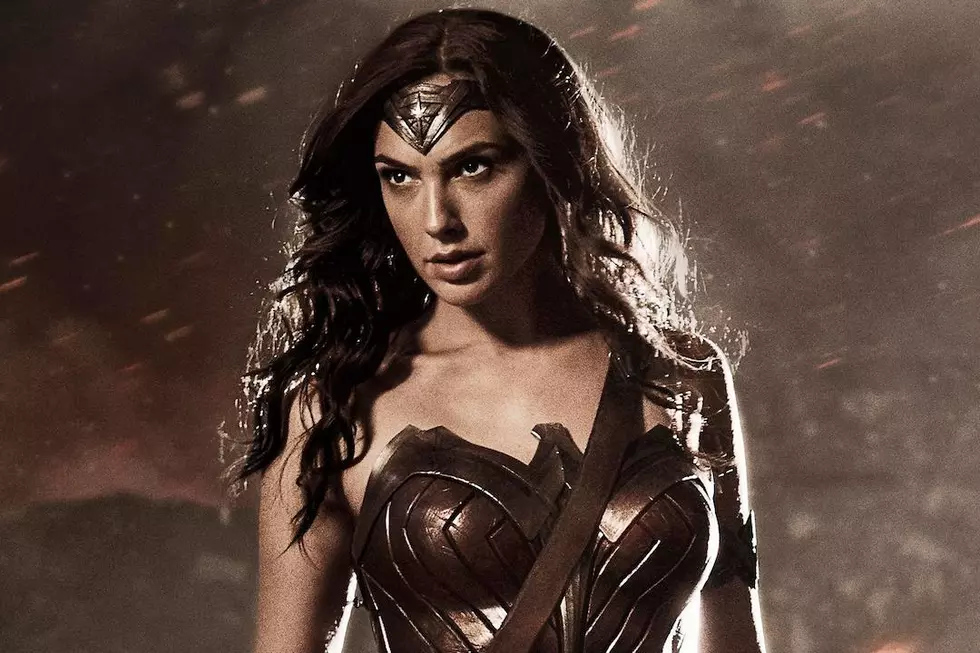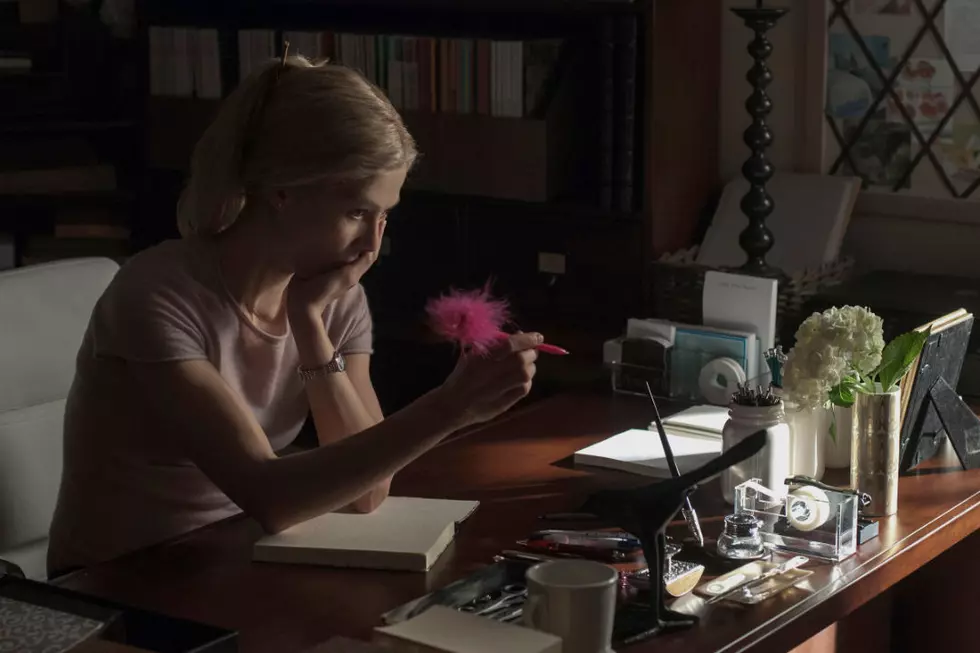
Reel Women: ‘You’re Next’ Takes an Axe to the “Final Girl”
'You're Next,' which hits theaters today, is an inventive, fresh, clever and incredibly engaging new horror film from Simon Barrett and Adam Wingard. While it has so much going for it to make it one of the most original horror films in recent memory, there's one crucial element that sets it apart (and above) its horror forebears: the reinvention of the "final girl" trope. Goodbye, final girl. Hello, final woman.
[This review contains spoilers for 'You're Next,' so unless you've seen the film or don't mind being spoiled, here's your fair warning to close the window and go back to watching cat videos.]
'You're Next' is the best horror film of the year -- no question. After sitting on the Lionsgate/Summit shelf for two years (I first saw it at the 2011 Fantastic Fest film festival), the film finally hits theaters this weekend and reinvigorates the genre with its clever spin on a home-invasion story. But what really impressed me, and doubtless many others, is the way the film approaches the old final girl trope. In horror, the final girl is the one female character who outlives everyone else -- men and women -- to escape a horrific tormentor and make it to the end of the film. But the final girl is never all that heroic.
In countless '80s campy slashers, the final girl typically makes it to the end of the film by the skin of her teeth. By sheer luck, she might land a blow with stereotypical, girlish effort -- the kind of thing you think of when someone lobs the insult, "You throw like a girl." Jamie Lee Curtis in 'Halloween,' for instance, who uses a coat hanger -- a symbol of domesticity, equated with femininity -- to stab Michael Meyers is a good example. It's rare that a horror film allows its female protagonist to buck this trend and become an active agent, not just of her own escape, but of overpowering her tormentor and coming out victorious. Ripley in 'Alien' was an amazing final woman, and more man than any guy on the Nostromo. Sarah (and to an extent, Juno) in 'The Descent' is another great example of what a final woman is and could be. I wouldn't necessarily say Sidney in the 'Scream' franchise, since so much of her survival depends on the assistance of others, and she's always portrayed as this endlessly victimized heroine who happens to know some witty insults and self-defense maneuvers.
'You're Next' continues the tradition of 'Alien' and 'The Descent' by presenting us with a surprising lead character, Sharni Vinson's Erin, who has gone home with her boyfriend Crispian (A.J. Bowen) to meet his family during their anniversary celebration at a countryside home. While Erin is one of the first characters we meet, we're swiftly introduced to Crispian's family and loved ones, and it isn't until the first attack on the party is made that Erin starts to emerge as the film's strong, surprising lead -- surprising only in that the film's mainstream genre brethren don't typically treat women so respectfully and admirably, leaving little for a female member of the audience to identify with or root for.
Erin, as it turns out, was raised by a survivalist father in Australia, where she was taught how to set 'Home Alone' death traps, tend to wounds, and react to danger calmly and cleverly. As Crispian's family members are offed one by one, it's Erin who tries to keep them safe and rally them to fight back. And it's Erin who survives to the end of the film, not through luck or just barely by a thread, but with vigor, answering a violent, invasive attack with reasoned violence. Unlike other recent violent horror films ('The Purge,' another home-invasion film, instantly comes to mind), it feels right to root for Erin as she outsmarts and attacks the masked villains, even when those attacks become increasingly personal -- and that's because the film doesn't glorify its violence, and it never feels gratuitous and needlessly gross. Barrett and Wingard smartly save the most heinous retaliation for the third act, and wisely cut away from a gratuitous shot in the final frame to go to the credits.
But the best moment, by far, has to be when Erin realizes that her loving boyfriend Crispian has been behind the attacks (along with one of his brothers) in a bid to get his parents' life insurance money. Vinson utilizes incredible control over her body and face while Crispian tries to convince her that he loves her, she was never meant to get hurt, and they can still live happily ever after. Meanwhile, the audience feels conflicted as she must: does she kill him for being evil, knowing he'll likely murder her when given the opportunity, or does she give him a little mercy? The more he talks about their relationship and feelings for one another, the more steely her stare becomes, and her decision to kill him feels all at once righteous, shocking and almost rapturous.
A final girl would listen to her manipulative, dangerous boyfriend and weaken just enough to let him escape. A final girl would hide from her captors and try to outrun them, or attack them with all the rage of a mouse. A final girl would live to the end of the film, sure, but thanks only to luck, not cunning. A final woman, though? She fights back, she is empowered, and she's not taking crap from anyone -- especially not her boyfriend.
More From ScreenCrush









